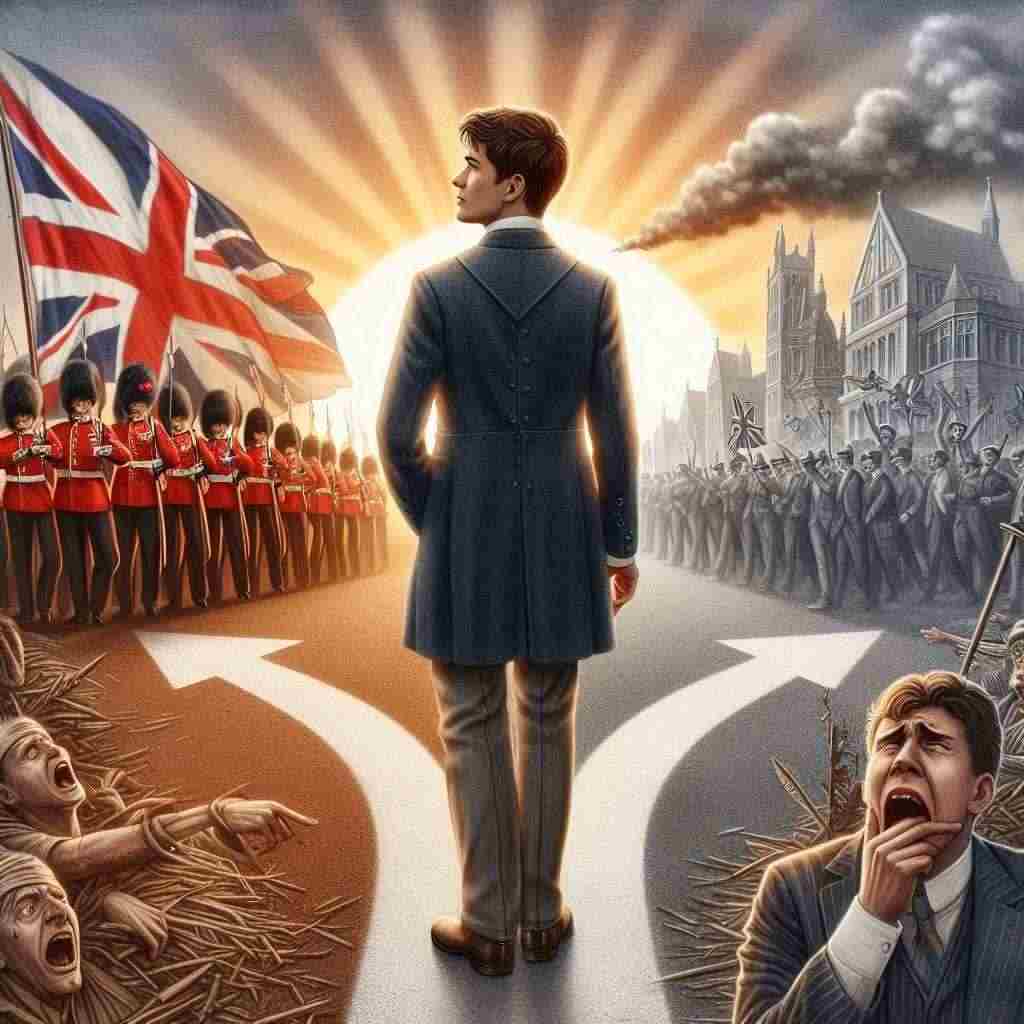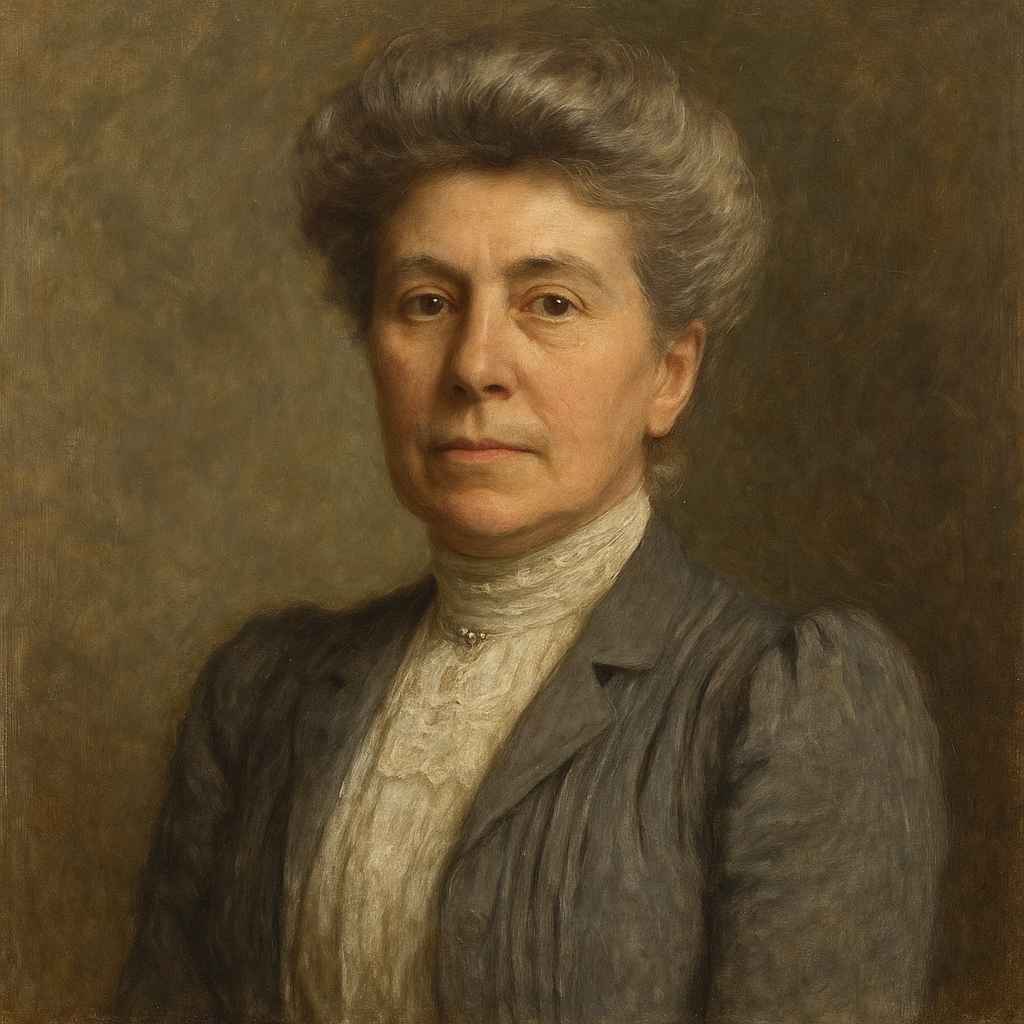The Call
Jessie Pope
1868 to 1941

Who's for the trench-
Are you, my laddie
Who'll follow French-
Will you, my laddie
Who's fretting to begin,
Who's going out to win
And who wants to save his skin-
Do you, my laddie
Who's for the khaki suit-
Are you, my laddie
Who longs to charge and shoot-
Do you, my laddie
Who's keen on getting fit,
Who means to show his grit,
And who'd rather wait a bit-
Would you, my laddie
Who'll earn the Empire's thanks-
Will you, my laddie
Who'll swell the victor's ranks-
Will you, my laddie
When that procession comes,
Banners and rolling drums-
Who'll stand and bite his thumbs-
Will you, my laddie
Jessie Pope's The Call
Introduction
Jessie Pope's poem "The Call" stands as a contentious piece of World War I literature, emblematic of the complex relationship between poetry, propaganda, and patriotism during one of history's most devastating conflicts. Published in 1915, at the height of the war, Pope's work exemplifies the jingoistic fervor that characterized much of the early wartime rhetoric in Britain. This essay aims to dissect the poem's formal elements, rhetorical strategies, and historical context, while also exploring its reception and lasting impact on war literature.
Formal Analysis
Structure and Rhythm
"The Call" is composed of three stanzas, each containing seven lines. This unconventional structure deviates from traditional poetic forms, possibly mirroring the disruptive nature of war itself. The poem's rhythm is driven by its consistent use of trochaic tetrameter, a meter that begins with a stressed syllable followed by an unstressed one. This creates a forceful, march-like cadence that echoes the militaristic theme of the work.
The repetitive structure of each stanza, beginning with a question and ending with a direct address to "my laddie," establishes a call-and-response pattern reminiscent of military drills. This technique serves to engage the reader directly, making them feel as if they are the "laddie" being addressed and challenged.
Rhyme Scheme
Pope employs a unique rhyme scheme. The alternating rhymes in the first five lines of each stanza create a sense of momentum, while the couplet at the end provides a forceful conclusion. This structure allows Pope to build tension throughout each stanza before delivering a final, pointed question to the reader.
Diction and Tone
The poem's diction is deliberately colloquial and accessible, employing phrases like "Who's fretting to begin" and "Who's keen on getting fit." This choice of language serves to make the call to arms feel familiar and unintimidating. The repeated use of "laddie" further reinforces this casual, almost paternal tone, as if the speaker is a friendly recruiter rather than an impersonal military authority.
The tone of the poem is undeniably enthusiastic and encouraging, presenting war as an exciting adventure rather than a grave undertaking. This approach, while effective as propaganda, has been widely criticized in the aftermath of the war for its misleading portrayal of combat.
Rhetorical Strategies
Use of Questions
The poem's most prominent rhetorical device is its relentless use of questions. Each stanza opens with two direct questions, followed by a series of implied questions. This interrogative approach serves multiple purposes:
- It engages the reader directly, forcing them to consider their own willingness to serve.
- It creates a sense of peer pressure, implying that others are eager to join the war effort.
- It frames military service as a choice, albeit one with a clear "right" answer.
Binary Opposition
Pope sets up a series of binary oppositions throughout the poem, contrasting courage with cowardice, action with inaction, and patriotism with selfishness. This simplistic dichotomy leaves no room for nuance or reluctance, effectively painting those who do not enthusiastically embrace military service as morally deficient.
Euphemism and Understatement
The poem notably avoids any mention of the harsh realities of war. Combat is referred to obliquely as a chance to "charge and shoot" or to "show his grit." This deliberate understatement of the dangers and horrors of war is a key aspect of the poem's propagandistic nature.
Historical Context and Propaganda
"The Call" must be understood within the context of Britain's desperate need for volunteers in the early years of World War I. The poem was published before the introduction of conscription in 1916, at a time when the British army relied heavily on a steady stream of volunteers to sustain its forces.
Pope's work aligns closely with other propaganda efforts of the time, including the famous "Your Country Needs You" recruitment posters featuring Lord Kitchener. The poem's emphasis on masculinity, adventure, and patriotic duty reflects the prevailing attitudes used to encourage enlistment.
However, it's crucial to note that this optimistic, sanitized portrayal of war quickly became outdated as the realities of trench warfare became widely known. The disconnect between propaganda like Pope's poem and the actual experiences of soldiers at the front led to a profound disillusionment that would shape much of the war poetry that followed.
Reception and Legacy
While "The Call" may have been effective as propaganda during the war, its legacy in literary circles has been largely negative. Pope's work has been criticized by both her contemporaries and later scholars for its simplistic and misleading portrayal of war.
Siegfried Sassoon, one of the most renowned poets of World War I, famously derided Pope in his poem "Suicide in the Trenches," referring to "smug-faced crowds with kindling eye / Who cheer when soldier lads march by." This line is widely interpreted as a direct rebuke to poets like Pope who glorified war from the safety of the home front.
Wilfred Owen, another prominent war poet, originally dedicated his poem "Dulce et Decorum Est" to Jessie Pope, though he later removed the dedication. Owen's graphic depiction of a gas attack serves as a stark counterpoint to Pope's sanitized version of combat.
In the years following the war, Pope's work fell into obscurity, often cited only as an example of misguided patriotism and the dangers of propaganda. However, in recent years, there has been a resurgence of interest in Pope's poetry from a historical and sociological perspective. Scholars have begun to examine her work as a reflection of home front attitudes and the complex role of women in supporting the war effort.
Feminist Interpretations
While Pope's poem has been widely criticized for its propagandistic nature, some feminist scholars have offered alternative readings of her work. They argue that Pope's poems, including "The Call," can be seen as an attempt by a female writer to engage with and influence the predominantly male discourse of war.
By adopting a masculine voice and addressing young men directly, Pope inserts herself into a conversation from which women were largely excluded. Her use of the term "laddie" and her assumption of a recruiting officer's persona can be interpreted as a subversive act, challenging gender norms of the time.
However, this interpretation remains contentious, as it must be balanced against the harmful effects of Pope's propaganda on the young men who were influenced by it.
Conclusion
"The Call" by Jessie Pope remains a controversial piece of World War I literature, embodying the complex interplay between art, propaganda, and patriotism in times of national crisis. While its artistic merits may be debatable, its historical significance is undeniable. The poem serves as a poignant reminder of the power of language to shape perceptions and motivate action, even in matters of life and death.
Moreover, the stark contrast between Pope's idealized portrayal of war and the brutal reality experienced by soldiers highlights the ethical responsibilities of writers during times of conflict. The legacy of "The Call" continues to prompt important discussions about the role of literature in times of war, the dangers of unchecked patriotism, and the importance of critical engagement with texts that seek to influence public opinion.
As we continue to grapple with issues of war, nationalism, and propaganda in the modern world, Pope's poem serves as a cautionary tale, reminding us of the importance of questioning simplistic narratives and seeking out diverse perspectives, especially in times of national crisis.
This text was generated by AI and is for reference only. Learn more
Want to join the discussion? Reopen or create a unique username to comment. No personal details required!



Comments
No comments yet. Be the first to comment!